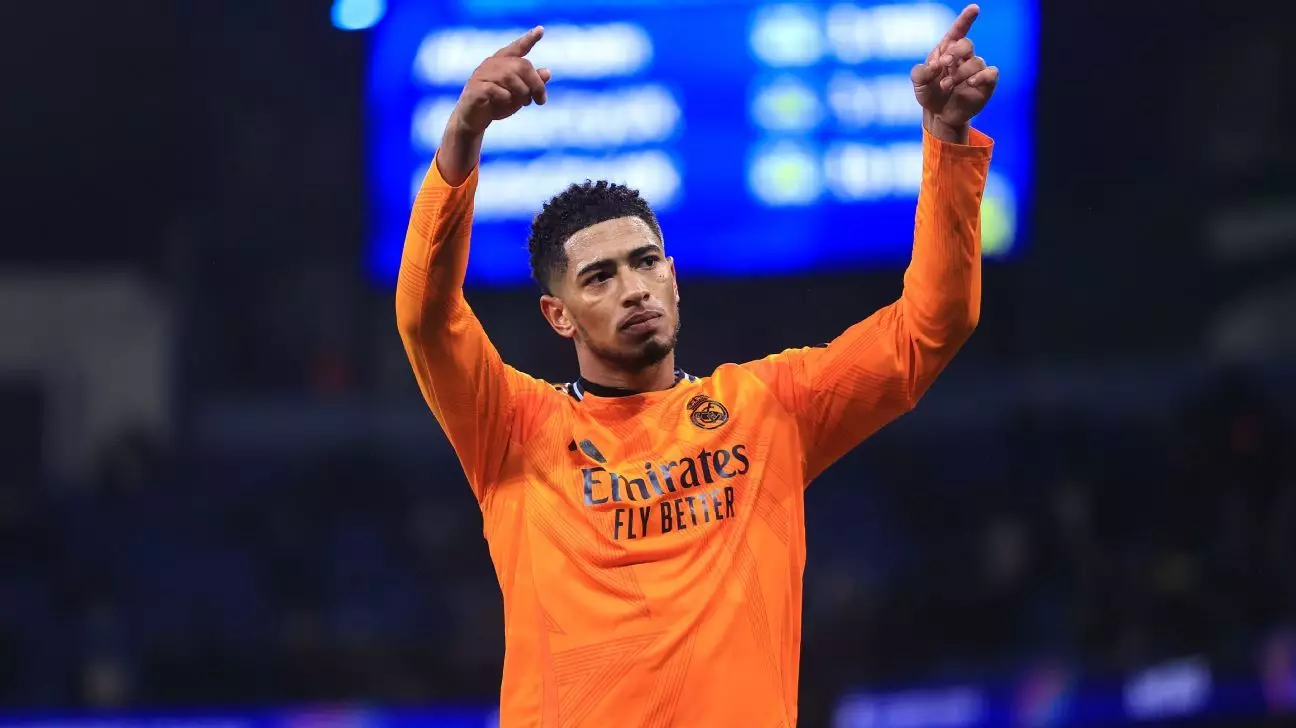In the landscape of contemporary football, player transfers often embody far more than mere career changes; they reflect shifting dynamics among clubs, the aspirations of young talents, and the allure of legacies built over decades. A recent case study in this domain illustrates these themes poignantly: the transfer of English midfielder Jude Bellingham from Borussia Dortmund to Real Madrid instead of a potential move to Manchester City. With the backdrop of LaLiga debates, explosive performances, and a crucial Champions League encounter looming, Bellingham’s choices speak volumes about his professional priorities, potential rivalries, and the growing complexities in European football.
Much of the conversation surrounding Bellingham has revolved around his decision-making process during a pivotal time in his career. Engaged in a dialogue with several clubs after his remarkable stint at Dortmund, Bellingham ultimately selected Real Madrid without hesitation. His reasoning was straightforward: when Los Blancos came calling, it was an offer that resonated not just financially but emotionally. His quote reflects the emotional ethos driving many athletes’ decisions, stating, “When Madrid called, I didn’t have to think twice.” This encapsulates the weight such clubs carry—their heritage and success elevating them beyond mere statistics or financial offers.
Choosing Real Madrid over Manchester City demonstrates a longing for history and legacy, two elements deeply embedded in the Madrid ethos. While City boasts a modern success story, emerging as a football powerhouse in recent years, the allure of wearing the famous white jersey adorned by legends remains unparalleled. Bellingham, with his roots in England, faced a choice that many players are reluctant to even contemplate—gravitating towards deep-rooted traditions at a club adorned with European trophies and charismatic players.
For Pep Guardiola, the prospect of Bellingham joining Manchester City has likely been a source of frustration. Guardiola’s history of elevating players to superstar status at Manchester is well documented, and it appears he had high hopes for the young Englishman to integrate into his tactical framework. With Bellingham thriving in Madrid’s setup, Guardiola’s disappointment has no doubt been palpable. As City prepares for a crucial second leg in the Champions League knockout stages, one cannot ignore the dramatic narrative that Bellingham’s choice represents—not just as an individual decision but as a broader statement on football’s evolving landscape.
This season has indeed revealed a downturn for City, hampered by injuries and inconsistent performances, contrasting sharply with Madrid’s resurgence under Carlo Ancelotti. Bellingham’s red card incident during a LaLiga match only adds fuel to that narrative. While some may question his approach or discipline, Bellingham’s overarching impact on the pitch speaks volumes about his talent; his decisive goal at the Etihad highlights his potential as a match-winner. Every time Madrid faces City, it’s as though Bellingham and Guardiola are engaged in a battle of wills, on and off the pitch.
Bellingham’s decision extends beyond his personal career path; it underscores a shift in player desires. The trend suggests that top-tier players are becoming increasingly drawn to clubs with historical depth, attacking traditions, and opportunities to etch their names into the annals of entitlement. Several prominent athletes have made similar choices before him—Cristiano Ronaldo and Gareth Bale are prime examples—each selecting Madrid over other contenders, despite the lucrative offerings from clubs like City and United. These decisions highlight how an attractive historical narrative can sometimes outweigh financial incentives alone.
Furthermore, it emphasizes the difficulty clubs like Manchester City encounter when attempting to establish a legacy that competes with the storied histories of teams like Madrid. While Guardiola’s tactical prowess is a formidable draw, the weather, lifestyle, and cultural factors present significant hurdles. It takes immense personal drive for players like Bellingham to accommodate such changes; thus, his choice highlights a broader struggle for many football entities attempting to make their mark in a world dominated by giants with established track records.
The upcoming Champions League clash will be more than just a game for Bellingham; it will serve as a personal showcase of his decision-making amidst a high-stakes environment. Having been on the losing side of City encounters during his time at Dortmund, this match offers him an opportunity to redefine his narrative against his former potential suitors. As he steps into the Bernabéu, the aura surrounding him will be electric, echoing the sentiments of fans eagerly beckoning him to perform like a superstar he is becoming.
As the whispers of “Hey Jude” fill the air, the world will be watching closely—not just to see how Real Madrid negotiates the second-leg pressure, but to witness Bellingham come face-to-face with the challenges posed by a City side aiming for redemption. In the landscape of football, where past choices shape futures, one thing is clear: Jude Bellingham’s trajectory may very well alter the footballing landscape, redefining how and where the world’s elite decide to place their loyalties, and ultimately, their futures.

